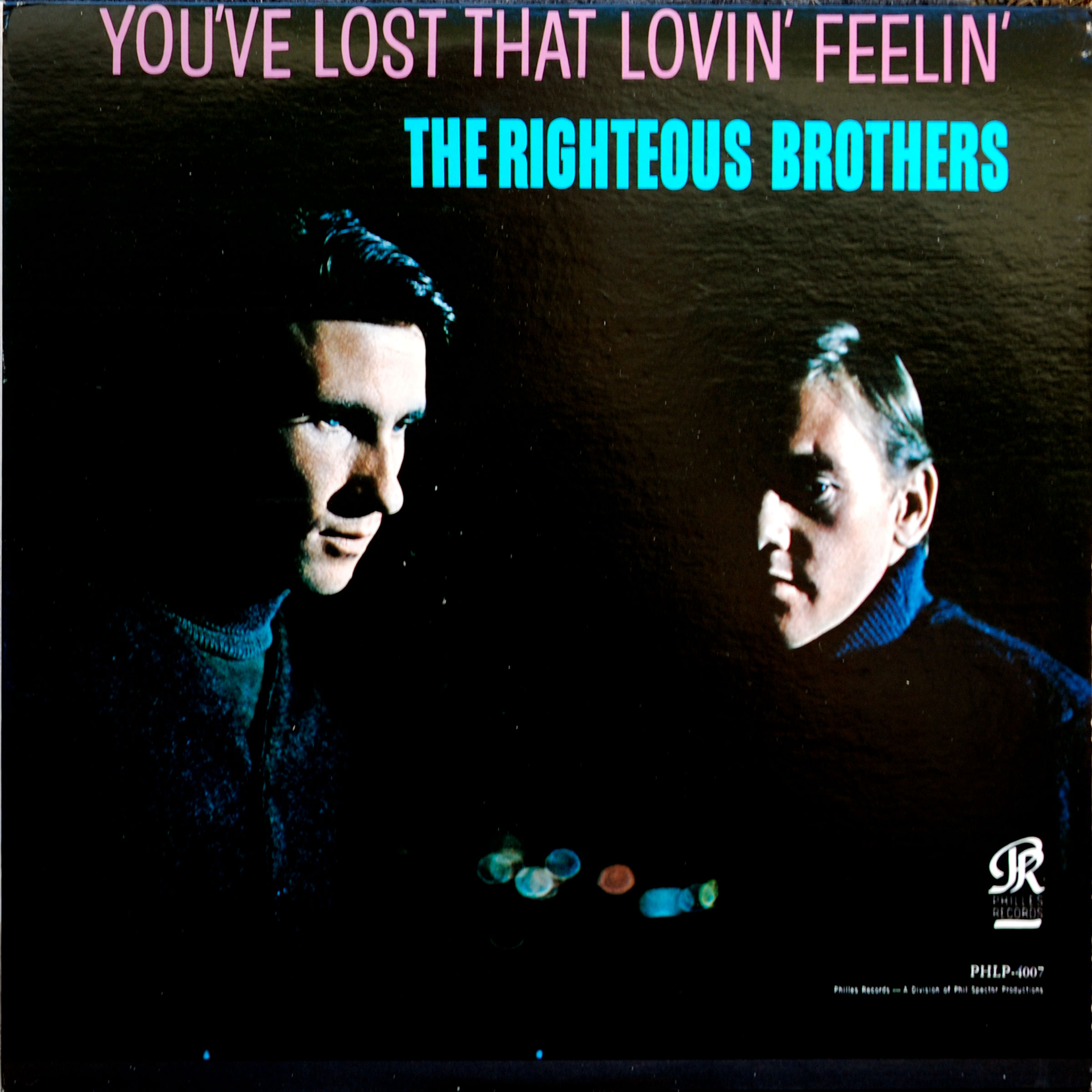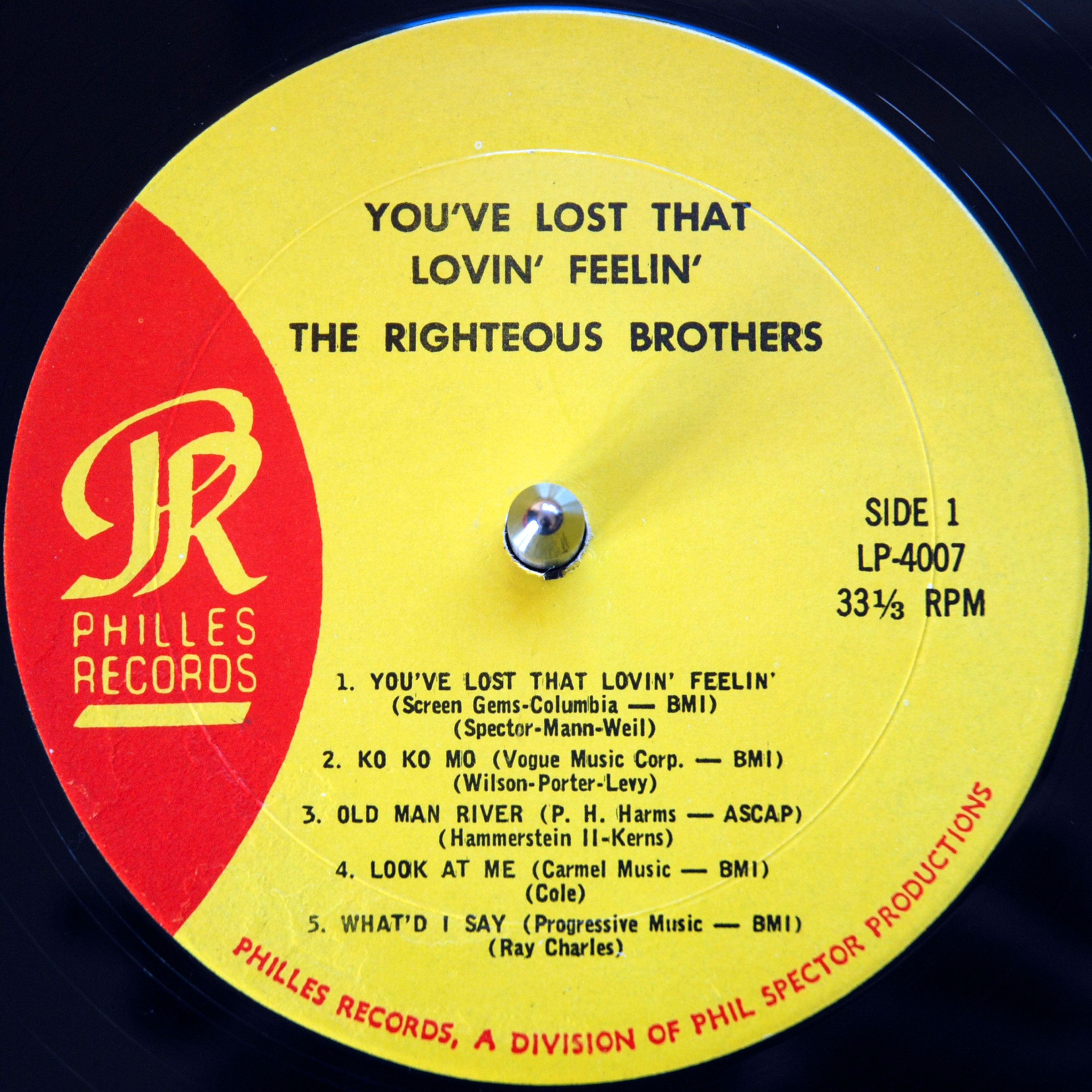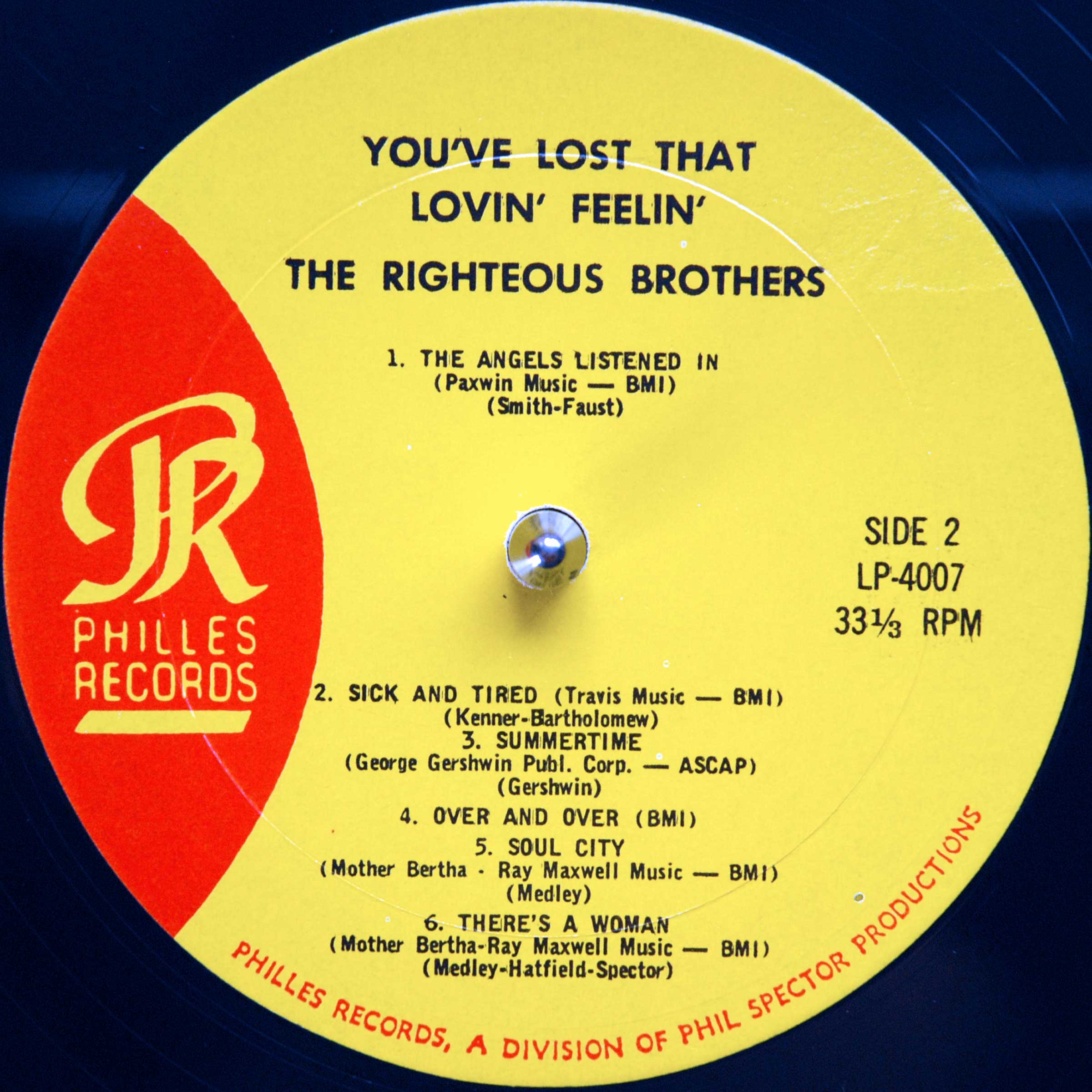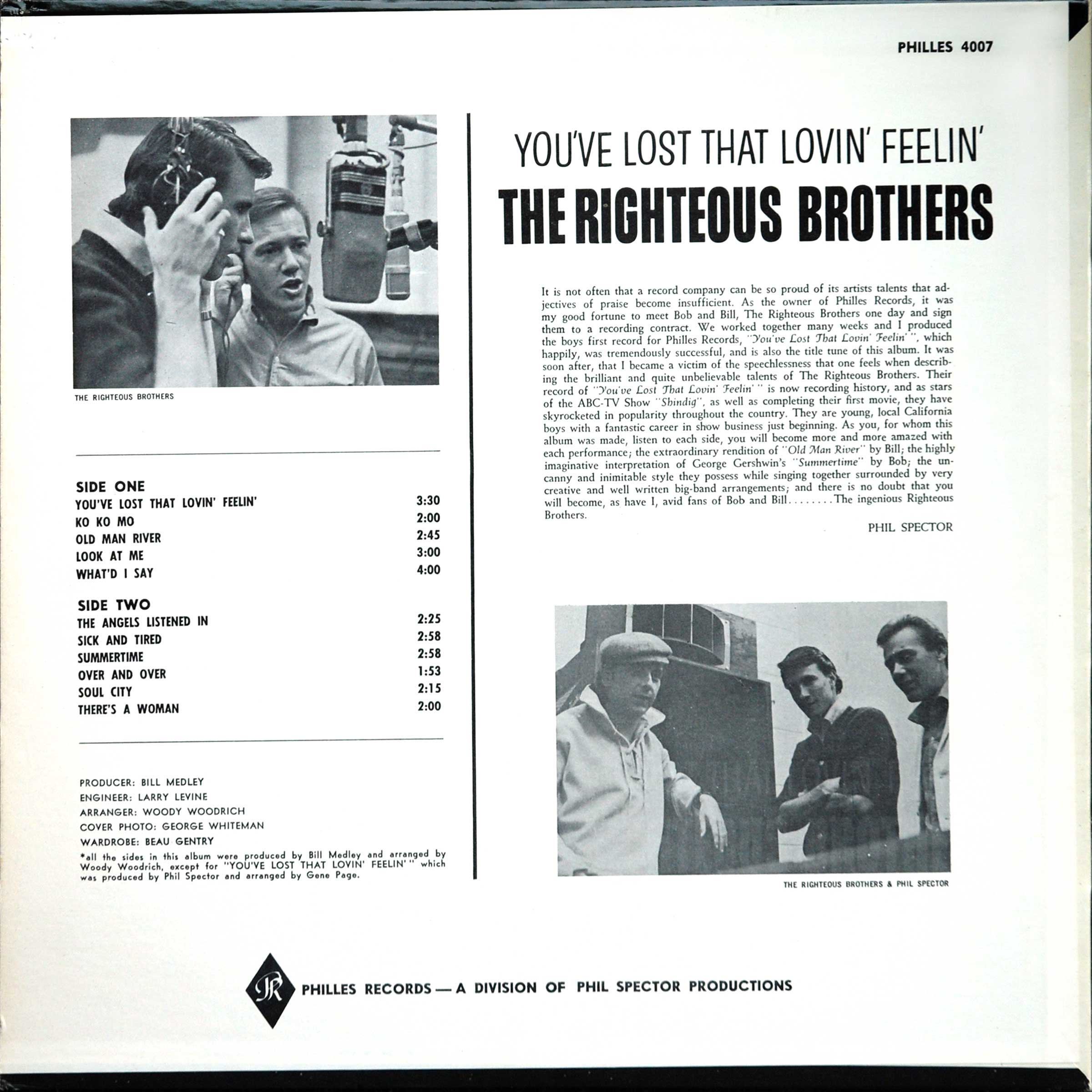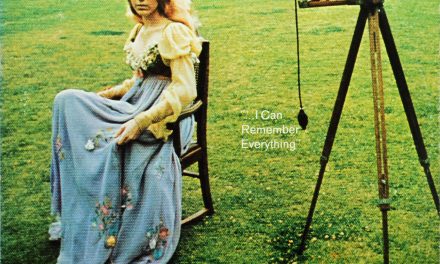Sons of Mrs. Righteous
All things have a beginning, even obsessions. Car nuts can tell you about the first bit of rolling artwork they fell in love with; artists can opine the watercolor or pastel that really moved them. In my case, the beginning of my obsession with music on vinyl was in 1977.
I was a sophomore in high school, barely 16. I transferred busses downtown at a corner that hosted an old brick building long abandoned by JC Penney, now occupied by a thrift store. Man, there was a lot of crap in that store, but there was one thing among the beat up furniture and old clothes that did turn me on: used records, stuffed into a browser rack in the very back of the store.
I’d had a bit of experience with records by then, primarily my parents’ Patti Page records and Rodgers & Hammerstein soundtracks… and with the used rock 45s from the swap meet, songs that would set my mom’s teeth on edge. But the first album I ever bought was You’ve Lost That Lovin’ Feelin’ by The Righteous Brothers.
Waiting on the 301 transfer to Carlsbad one morning, I was browsing the used 45s in the drawers at the bottom of the record bin and there was nothing, and I mean nothing, worth buying, even for two bits. But up above, right at eye level, was a shiny black cover with a moody photograph and a cover blurb proclaiming the title track. I’d heard the song on the radio, so I figured “What the heck? For 65 cents, I can take a chance.”
According to Bill Medley, “The Righteous Brothers started out in Orange County, California. It was about the whitest place in the country, but the black Marines from the nearby base heard there were two guys singing rhythm and blues, so they came down to hear us. At the end of our songs they’d yell out, ‘That’s righteous, brother!’ and that’s how we got our name.”
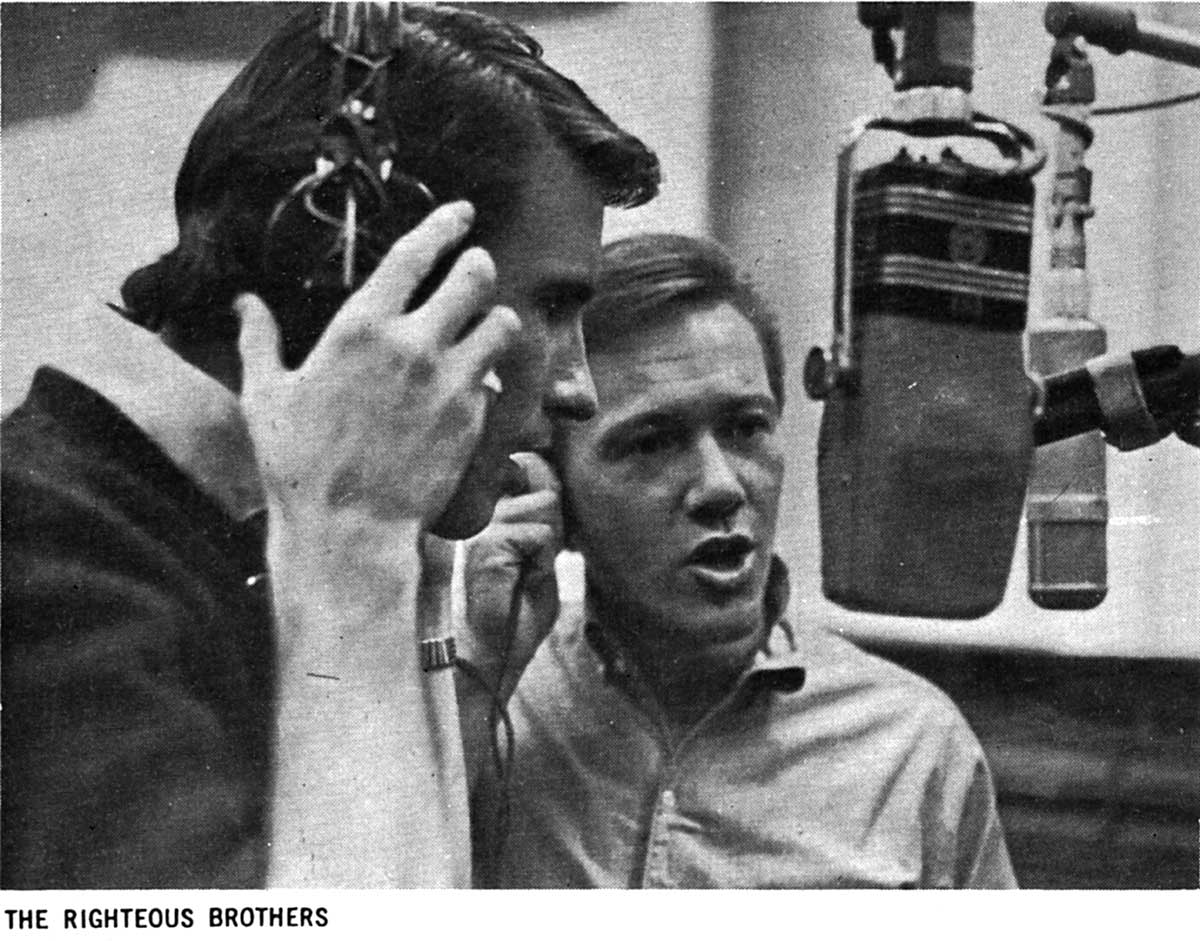
“At the end of our songs they’d yell out, ‘That’s righteous, brother!’ and that’s how we got our name.” – Bill Medley
For this first album under Phil Spector’s aegis, the title track got the full Spector treatment – the huge echo, Wrecking Crew backup, Gene Page-arranged Wall of Sound experience – but the rest of the album was much more visceral. More lively. More like (I would come to find out) the sound the Righteous Brothers had before Spector, when they were signed to Ray Maxwell’s Moonglow Records, a tiny label headquartered down the street from the Capitol Records tower in Los Angeles. And for good reason: Spector only buffed the title track; the album’s other 10 songs were solely the domain of Bill Medley — soul shouters like “Ko Ko Mo” and “What’d I Say”, and even a cover of The Crests’ 1959 oldie “The Angels Listened In” (albeit delivered with more soul and grit than Johnny Maestro could hope to have in even his wildest dreams).
You’ve Lost That Lovin’ Feelin’ (Philles LP-4007) was the first of 3 albums recorded for Spector’s Philles Records, and the best-known as well. It was followed by Just Once In My Life (Philles Lp-4008), with another massive Spector-produced title hit, and finally Back To Back (Philles LP-4009), which was pretty much the last Lp Philles ever released; Spector closed the label at the end of ’66.
There’s something about the interplay of Medley’s alternatingly gruff and smooth baritone with Hatfield’s high, sweet tenor that is a natural fit. It’s like caramel crusted with salt, or peanuts coated in sriracha — a little bit of smooth mixed with just the right amount of spicy. The Righteous Brothers were masters of this combo, at least in their early years – check out this video from 1965, with both of them working a single mic at once, to see how seamlessly they blended. They’d switch to MGM’s Verve Records next, where they eventually split up and recorded solo albums. Medley waxed while Hatfield waned, unfortunately, and their friendship ended as well until a 1975 reunion brought them back together for one last massive hit. But I digress (I do that a lot).
So there it is — the story of the record that started an obsession. By the way, the album pictured here is the same Lp I bought all those years ago. Funny: unlike yours truly, the record hasn’t aged at all. But when I listen to it, I feel 16 all over again.

